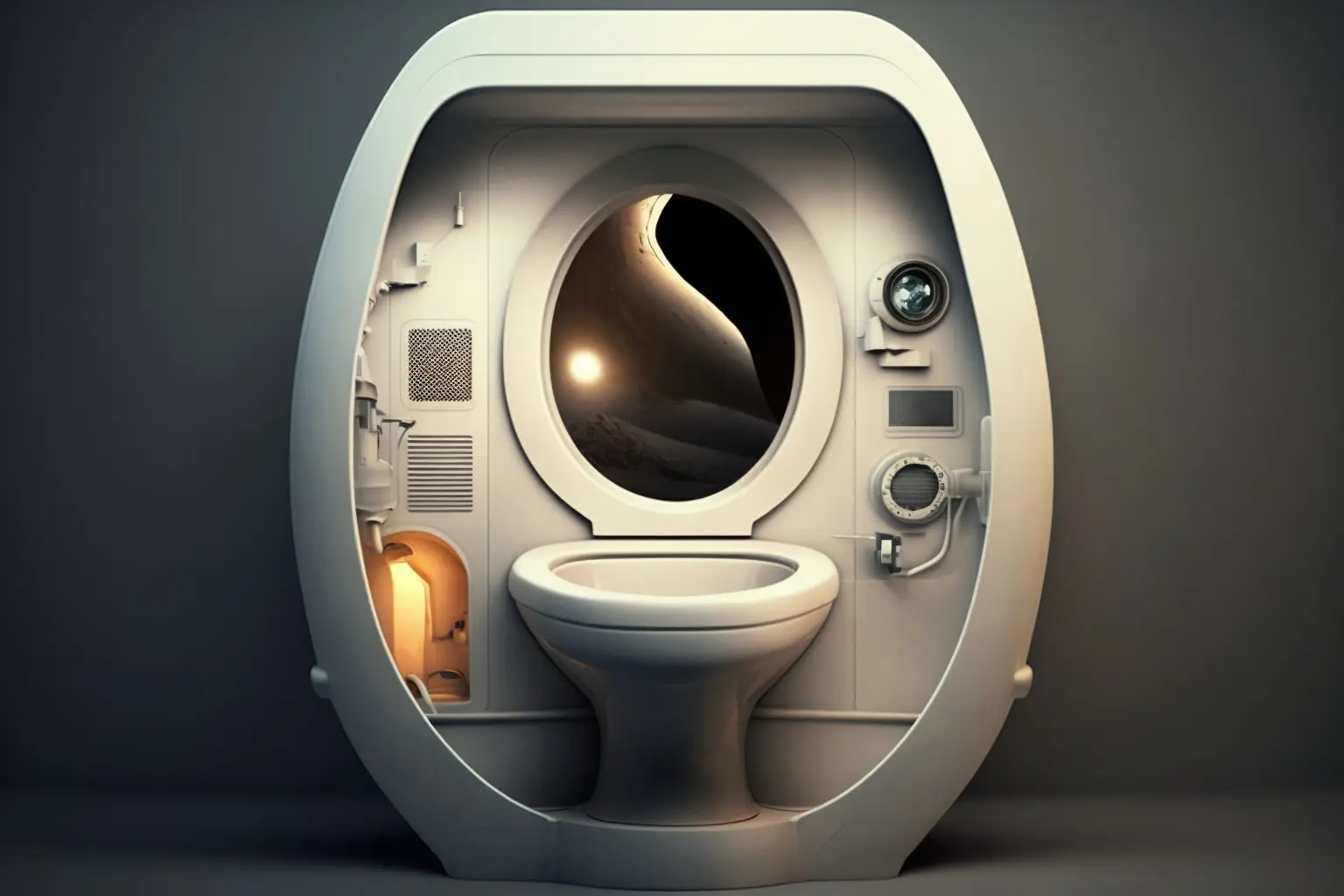As a space traveler, you might wonder how we humans manage to survive and thrive inside a spaceship. Well, let me tell you, it’s not rocket science! Okay, maybe it is, but it’s not as daunting as it sounds.
Here’s a rundown of how we do our daily activities in space, from breathing to pooping to working and beyond.
Breathing in Space: Air Is Life Support
The first thing you need to know is that we can’t breathe the vacuum of space. So, we need to bring our own air supply. That’s why our spaceship has an advanced life support system that generates and recycles breathable air, water, and food.
The air filters remove carbon dioxide, and the oxygen generators replenish the air with fresh oxygen. It’s like having a mini Earth inside the ship, but with fewer trees and more machines.
Eating in Space: Mealtime Is Out of This World
Next, let’s talk about food. Since we can’t go to a grocery store in space, we have to bring our own food or grow it onboard. Our space chef designs tasty meals that are easy to prepare and eat in microgravity.

We use special utensils that stick to our plates and prevent the food from floating away. We also have to be careful not to spill any crumbs or liquids, or they could clog the air filters or damage the equipment.
Trust me; you don’t want to be the one who caused the space toilet to malfunction!
Sleeping in Space: Rest and Relaxation Are Weightless
Now, you might wonder how we sleep in space. Well, it’s pretty similar to sleeping on Earth, except that there’s no up or down. We each have our own cozy sleeping bag attached to a wall or a ceiling.

We can sleep in any orientation we like, whether it’s upright, sideways, or upside down. Some people even like to sleep floating in the air, like astronauts in a sci-fi movie. The only downside is that you can’t snuggle with a pillow, or it will float away.
Toileting in Space: The Call of Nature Is Zero Gravity
Ah, yes, the elephant in the room: how do we handle our physiological needs in space?
Well, it’s not glamorous, but it’s essential. We have a special space toilet that uses air flow and suction to collect and store our waste. We have to strap ourselves to the seat to prevent ourselves from floating away during the process.

Then, the waste is compressed and stored until it can be disposed of safely. It’s not the most pleasant task, but it’s a small price to pay for exploring the final frontier.
Working in Space: Mission Control Is Our Groundhog Day
Last but not least, let’s talk about work. We each have our own job and duties on the spaceship, whether it’s conducting experiments, fixing equipment, or piloting the ship. We communicate with Earth through a network of satellites and antennas, and we receive instructions and updates from Mission Control.
The days can blend together in space, but we try to stay productive and focused on our goals. After all, we’re on a mission to discover new worlds and push the boundaries of human knowledge.
Living in a Spaceship: The Ultimate Adventure
So, how long can we stay in space? Well, it depends on the mission and the resources we have. Some astronauts have stayed in space for more than a year, while others have only gone on short trips.
Living in a spaceship is not without its challenges, such as radiation exposure, isolation, and psychological stress. But it’s also a unique and thrilling experience that few people get to have.

We get to see the Earth from a new perspective and explore the wonders of the cosmos. We get to work with a diverse and talented crew from different countries and backgrounds. We get to learn new skills and technologies that could benefit humanity in many ways.
Living in a spaceship can be habitable for a long time, but it requires careful planning, maintenance, and cooperation. We have to be mindful of our resources and waste, and we have to support each other’s physical and mental health.
We also have to be prepared for emergencies, such as equipment failures, medical issues, or space debris impacts. But with proper training and preparation, we can overcome these challenges and make history.
FAQs: Common Questions About Living in Space
Here are some common questions that people ask about living in space:
- How do astronauts exercise in space? They use special equipment, such as treadmills, stationary bikes, and weight machines, that simulate gravity or resistance. They also do aerobic and resistance training to maintain their muscle mass and bone density.
- How do astronauts deal with motion sickness in space? They take medication or use countermeasures, such as ginger, acupressure, or virtual reality, to alleviate the symptoms. They also avoid sudden head movements and adjust their posture gradually to adapt to microgravity.
- How do astronauts sleep in space without a bed? They use sleeping bags that attach to a wall or a ceiling, or they float in the air using a restraint system. They also wear eye masks and earplugs to block out the light and noise from the spaceship.
- How do astronauts stay clean and hygienic in space? They use wet wipes, rinse-less shampoos, and waterless soaps to wash their skin and hair. They also change their clothes regularly and use air purifiers to remove odors and allergens from the air.
- How do astronauts entertain themselves in space? They can read books, listen to music, watch movies, play games, or communicate with their families and friends on Earth. They can also stargaze, take photos, or do art and crafts to express their creativity.

Conclusion: Blast Off to the Future!
Living in a spaceship may seem like a sci-fi dream, but it’s a reality that we can achieve with our current technology and knowledge. As we explore space, we also learn more about ourselves and our place in the universe.
We discover new possibilities and challenges that can inspire us to innovate and collaborate. We overcome our fears and limitations and embrace our curiosity and courage. We blast off to the future, together.





